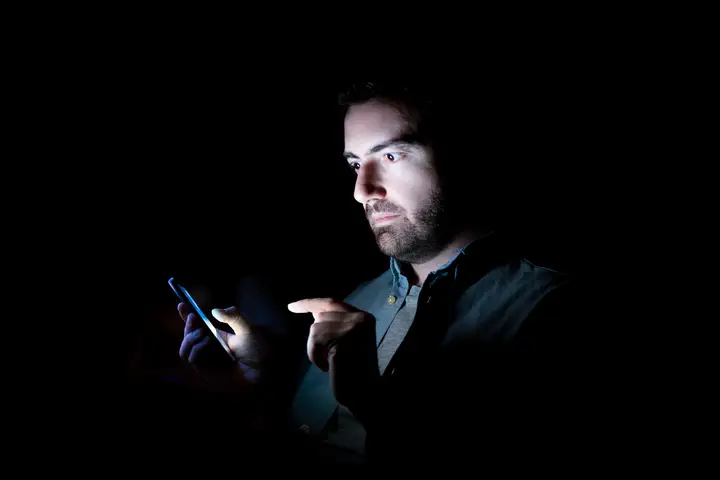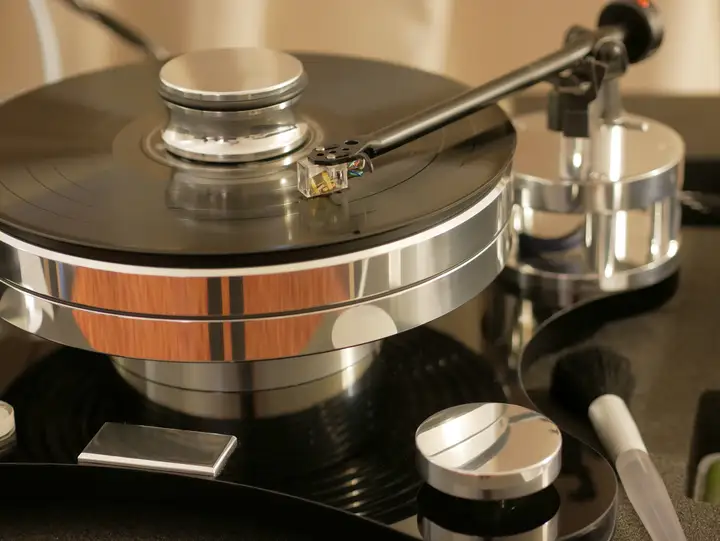Hobbies are activities that people engage in for enjoyment, sometimes as means of decompressing, unwinding, and relieving stress. Hobbies are generally synonymous with pleasure, and this can take place by the release of dopamine "happy hormone". The positive experience makes us to want more of this experience, and the cycle repeats sending us on the journey of chasing to have more of it. Very often people can maintain and enjoy similar hobbies for years, however, this can be different for people with ADHD.
Having a hobby, can be crucial for some ADHD sufferers in managing their symptoms. It can give you a positive way to release all that extra energy, curiosity and sometimes can be used as a form of avoiding important tasks in your life. When having an ADHD diagnosis, maintaining a passion for hobbies is a different matter. People suffering from ADHD have a propensity to lose interest easily and have a difficult time in maintaining focus for a lengthy period.
The majority of the time, they give up their hobbies in favour of something else. Be it sports, fantasy books, musical instruments, photography, or video games. The list could go on forever, and the result would probably stay the same. In most situations, people suffering from ADHD are bursting with creativity, enthusiasm, and excitement. Once they locate a source of stimulation, they become hyperaware of it. Hobbies can frequently turn into obsessions in less than a week for adults with ADHD and take over their life.
Hobbies in ADHD, the journey:
Curiosity
Curiosity is the first step of hobby development. When a person's attention is aroused by receiving and processing an initial concept of doing something, this is when it happens. All of the knowledge regarding that particular interest is acquired at this moment. Endless hours of research online, time is passing fast! Even if we're only watching Youtube videos or reading related articles or blog entries, we could become curious when anything ignites that unique thrill. This curiosity will push us to move forward and try to pursue the idea with a tiny dose of impulsivity paired with hyperactivity. Daydreaming takes place and we can only imagine how great this hobby is going to be.

Excitement
The ADHD brain then moves on to the following stage, which involves becoming devoted to and talking nonstop about the new hobby. We frequently talk with our friends about the new plan, and we have strong hopes that it will work. It's an indication that your task will be enjoyable and satisfying when you're driven and thrilled to do something more worthwhile in your free time. Hyperfocus occurs at this point. It happens when you have spent the majority of your time arranging everything that needs to be done for your new hobby to succeed, or when you can research all the material related to it in one sitting. This can easily turn up into an obsession, at the risk of neglecting important activities of daily life.

Enjoyment
The person suffering from ADHD achieves what they want to happen, the cycle's climax. They are happy as a result of what they are doing. We produce a lot of dopamine when we effectively learn something new, which makes us feel good. At this stage, the person may start to disengage after they feel learning everything about the hobby and become less attentive to what we they are doing. This is the beginning of the end, the excitement vanishes. Now everything will appear familiar, and you will probably notice that you returned to the same pattern.

Boredom
There will inevitably come a moment when you grow bored, worn out, and drained from engaging in your hobbies, whether you practice martial arts, or play instruments. At this point, you'll choose to return it and try a different one. The never-ending cycle may not stop yet, until reaching out for appropriate support and developing awareness about ADHD. In this stage, you may realize the stockpile of crafts, equipment, or financial expense and you wonder why this is happening again.

Denial
In the final stage, when the person suffering from ADHD tells themselves and loved ones "I'm not giving up on my hobby, I am planning to get back to it when I have more time". This is very often used to reason not to give up on the stockpile of goods accumulated, and buy yourself extra time. In this stage, the person can be confronted by their partner about their choices, expenses, and strain that may be put on relationships. Once a new hobby comes on the horizon, the person gradually becomes drawn into it and the cycle continues. "This time will be different".

"But isn't normal for people to become bored of hobbies and activities".
Yes, it is, however, ask someone suffering from ADHD about their journey and relationship with hobbies, and you may be surprised. From DIVA-5 (Diagnostic Interview for ADHD in Adults). "For the disorder to be present, it should cause impairment in at least two situations, such as work and education; relationships and family life; social contacts; free time and hobbies; self-confidence and self-image, and be at least moderately impairing".
Top Hobbies for Adults with ADHD
While research on the most popular hobbies among individuals with ADHD is ongoing, clinical observations consistently reveal a common thread: a strong desire for novelty, exploration, and creative expression. Here are some of the most frequently observed hobbies, often reflecting these shared interests. You might find yourself resonating with one or more of them.
Gaming in ADHD beyond stereotypes
While gaming often carries negative connotations, it's a world of endless possibilities and infinite exploration. The thrill of discovery new quests, rare items, the challenge of mastering new skills, the unpredictability can make gaming a compelling pastime. For some with ADHD, gaming can also serve as a positive escape outlet, providing a sense of accomplishment and a distraction from the daily life negative emotions.
For those with ADHD, the dopamine rush often associated with risk-taking behaviours can be channelled into gaming, providing a safer and more fulfilling alternative. Strategy games, single-player adventures, and now more recently popular immersive VR experiences can offer a stimulating and educational experience.
Many gamers enjoy the challenge and satisfaction of building their own computers, researching the latest hardware, and overclocking to optimize performance. This constant pursuit of cutting-edge technology aligns well with the ADHD mind's desire for novelty and exploration.
While this hobby can be rewarding, it's important to acknowledge that the ongoing investment in new PC components and games can be challenging for partners and loved ones to understand.

Playing guitar, the symbol of creativity
Playing an instrument, particularly the guitar, is a popular hobby among individuals with ADHD. The endless possibilities for experimentation—new sounds, techniques, and equipment—align perfectly with the ADHD mind's desire for novelty. The pursuit of a unique sound, through experimentation with different guitar pickups, amplifiers, or specific guitar models, can be a rewarding and enjoyable experience. This ongoing quest can provide a constant source of stimulation and satisfaction for the ADHD mind.
Whether it's playing in a band, composing music, or teaching others, the guitar can provide a creative outlet and a sense of accomplishment. The repetitive nature of practice, often challenging for those with ADHD, can be made more enjoyable through the pursuit of mastery and the satisfaction of creating something unique.

Photography: The creative hunter
Photography, both digital and film, offers a wealth of creative opportunities for individuals with ADHD. The unpredictability of capturing the perfect shot, the endless possibilities for experimentation, and the thrill of discovering new techniques and equipment make it an ideal hobby.
The constant pursuit of new gear, known as "Gear Acquisition Syndrome" (GAS), can be a common occurrence for those with or without ADHD. While it might be seen as excessive spending, it can also be viewed as a way to fuel creativity and exploration. It's important to remember that there's no single 'perfect' camera. The pursuit of perfection can often lead to disappointment. Instead, focus on finding a camera that suits your needs and inspires your creativity.
A recent trend in photography is a return to film and minimalist cameras with fewer buttons and screens. This approach empowers photographers to focus on their creative expression without distractions.
Whether you're drawn to astrophotography, street photography, product or billboard photography, or simply want to explore photography as a hobby, this hobby offers countless opportunities for self-expression and personal growth.

Stronger, Faster, focused: Ice hockey, Rugby and Climbing
Ice hockey with its fast-paced nature, unpredictable plays, and the need for hyperfocus, can be a favourite sport for individuals with ADHD. The physical and mental demands of the game can provide a stimulating and rewarding experience.

Rugby is another favourite sport for individuals with ADHD. The controlled environment, combined with the need for hyperfocus and competition, can provide a stimulating and rewarding experience. While clumsiness might be a challenge in other sports, it can be a unique advantage in rugby. The ability to take risks and maintain a clear field of vision are often valuable assets.

Climbing can be a positive activity for some people with ADHD. Many climbers with ADHD possess natural above average flexibility and a willingness to take risks, making it a natural fit. The need for visualization, strategic thinking, and adaptability in the face of unexpected challenges aligns well with the strengths of the ADHD brain. Climbing offers opportunities for setting and achieving specific goals, such as learning a new technique or conquering a particular route. This can be a powerful motivator for individuals with ADHD, who may struggle with maintaining focus and motivation in other areas of life.

ADHD Minds Behind the Camera: The Power of Filmmaking
Videography, whether as a director, producer, technician, or editor, offers a vast array of creative outlets for those with ADHD. The freedom to express oneself through storytelling, visual effects, and sound design can be incredibly fulfilling. Many successful filmmakers and video creators attribute their creative achievements to their ADHD, which often fuels their unique perspectives and innovative approaches.
Some film directors possess a remarkable ability to envision the entire film before it's even completed, having a clear mental image of the final product.
While this can be a creative advantage, it can also present challenges, such as missed deadlines, budget overruns, and strained relationships on set. Many of the most iconic films have fascinating behind-the-scenes stories that reflect these challenges.

Crochet: A Surprisingly Popular Hobby
Crochet, a hobby often associated with patience and precision, might seem counterintuitive for those with ADHD. However, many find the repetitive nature of the craft to be calming and meditative, providing a sense of focus and accomplishment.
The tactile experience of working with yarn and the satisfaction of creating something tangible can be particularly rewarding for individuals with ADHD.
For some, crocheting can evolve into a rewarding and fulfilling journey. Turning a passion for creating unique items, designs into a business can offer opportunities for personal and professional growth.

How Fiction Fuels Curiosity and Creativity
Writing is a natural hobby for the creative and imaginative minds of many with ADHD. The ability to transform daydreams into engaging stories and characters can be a powerful tool for self-expression and storytelling. The challenges often faced by individuals with ADHD, such as difficulty focusing and staying organised, can be turned into strengths when writing. The ability to hyperfocus on a task can lead to bursts of creativity and productivity.
One potential drawback of immersing oneself in fiction is that it can temporarily isolate individuals from others. They may not understand the appeal of spending hours reading imaginative stories. However, for many with ADHD, reading fiction offers a unique escape. It's like stepping into a world without limits or rules, a place where imagination can run freely, and daily stresses can be left behind.

Jiu-Jitsu and BJJ
Jiu-jitsu has become a popular choice for individuals with ADHD due to its unique combination of need for creativity combined with physical challenges. This sport offers a stimulating environment that can help individuals with ADHD manage their symptoms and improve their overall well-being. In this sport, where every submission counts, ADHD's ability to think creatively can give you the competitive edge.
Jiu-jitsu rewards hyperfocus, providing a strong sense of accomplishment for individuals with ADHD. The structured nature of the sport requires participants to pay attention to every detail, follow instructions, and make quick decisions. By strengthening their attention span through these cognitive demands, individuals with ADHD can better navigate the challenges of everyday life.
Beyond improving focus, jiu-jitsu provides a physical outlet for individuals with ADHD. The sport's dynamic nature, which requires precise timing, can help alleviate anxiety, hyperactivity, and impulsivity. Regular exercise is a crucial tool for improving cardiovascular health, boosting mood, and reducing stress. This sport particularly benefits individuals with ADHD who often possess above-average natural flexibility, making jiu-jitsu an ideal fit.
Depending on the club, jiu-jitsu can provide opportunities for individuals with ADHD to connect with others and improve their social skills in a familiar environment.

The Ever-Changing Hobby Collector
One common trait among individuals with ADHD as highlighted above is the tendency to become intensely interested in a hobby, only to lose interest and move on to the next. This "hobby chasing" behaviour can be both frustrating and rewarding. While it can lead to a sense of restlessness and a lack of commitment, it can also fuel a desire for exploration and discovery. By embracing this aspect of their personality, individuals with ADHD can use their curiosity to their advantage and step outside their comfort zones.
Remember the most common steps of the hobby chaser are curiosity, excitement, enjoyment, boredom, denial and the cycle often repeat.

Conclusion
Not being able to maintain a hobby is often seen in ADHD. This can have a significant impact on your quality of life, and pose challenges in: maintaining relationships, overspending, postponing, and decluttering.
With support for ADHD such as therapy or medication, you should be able in having control over enjoying a hobby, more pleasantly and sustainable.
"The National Institute for Health and Care Excellence estimates the global prevalence of ADHD in adults in the UK at 3% – 4%", but some experts think the actual incidence may be significantly higher. Many adults today may have lived with ADHD their entire lives due to misconceptions and myths regarding the condition. The ADHD symptoms in women can be different, the hyperactive symptoms can be less and the inattentive symptoms can be mistaken for anxiety, or having a shy personality. Becoming "tired quickly of hobbies" it is recognized by one of the most used ADHD diagnostic structured interviews.
While a love of trying new things is often associated with ADHD, it's important to remember that not everyone who enjoys exploring hobbies has this condition.
An accurate diagnosis of ADHD requires a comprehensive evaluation by a qualified healthcare professional. At our ADHD Specialist Clinic in London, we offer in-depth 2.5-hour assessments to ensure accurate diagnosis and personalized treatment plans. We believe that a high-quality assessment is crucial for achieving long-term success.

Live in London or elsewhere in the UK? We can help with your ADHD diagnosis journey:
- Comprehensive 2.5-hour assessments for accurate diagnosis and a holistic approach.
- Expert evaluation by highly trained psychiatrist specialising in adult ADHD.
- Online assessment options to suit your needs and lifestyle.
Ready to take the first step? Visit our website to learn more about the ADHD diagnosis and holistic treatment:
References
DIVA Foundation - DIVA-5 - Use of DIVA-5 (divacenter.eu)
Mahdi, S., Ronzano, N., Knüppel, A., Dias, J. C., Albdah, A., Chien-Ho, L., ... & Bölte, S. (2018). An international clinical study of ability and disability in ADHD using the WHO-ICF framework. European child & adolescent psychiatry, 27(10), 1305-1319.
https://www.behavioralhealthflorida.com/blog/how-some-people-come-to-realize-they-have-adult-adhd/
https://www.theminiadhdcoach.com/blog/adhd-hob
Pictures source Pexels.com Free Stock Photos, Royalty Free Stock Images & Copyright Free Pictures · Pexels
Disclaimer: The information is not intended nor implied to be a substitute for professional medical advice, diagnosis or treatment. All content, and information, contained in this article is for general information purposes only and does not replace a consultation with your own doctor/health professional. Information about mental health topics and treatments can change rapidly and we cannot guarantee the content's currentness. For the most up-to-date information, please consult your doctor or qualified healthcare professional. For more information, you can check the Royal College of Psychiatrists (rcpsych.ac.uk)
.svg)
.svg)





.svg)






